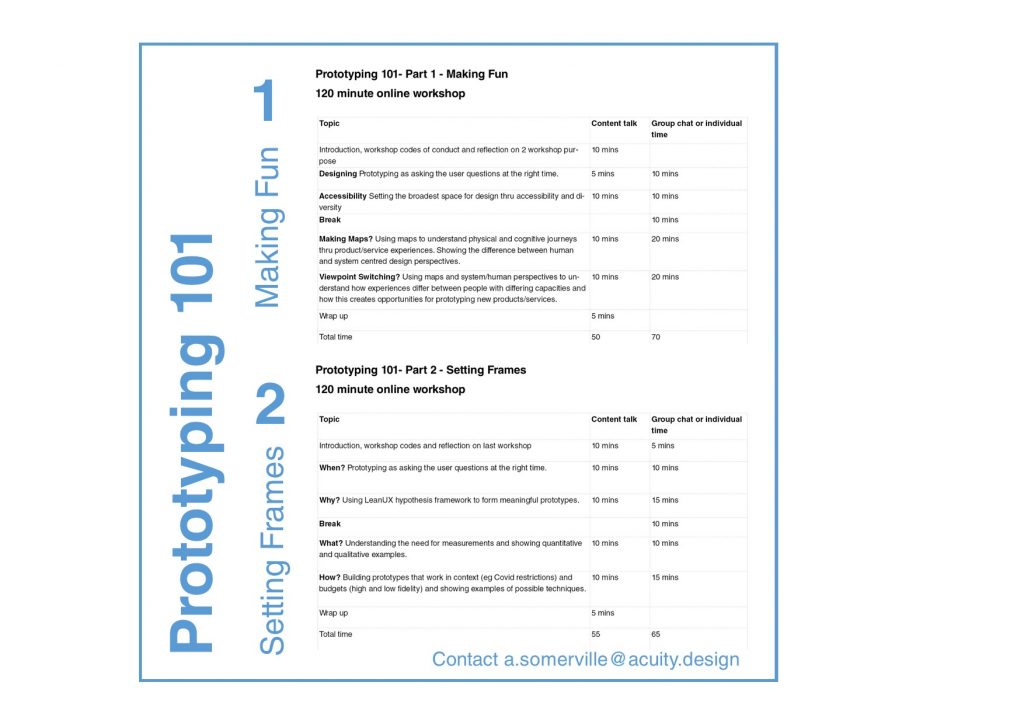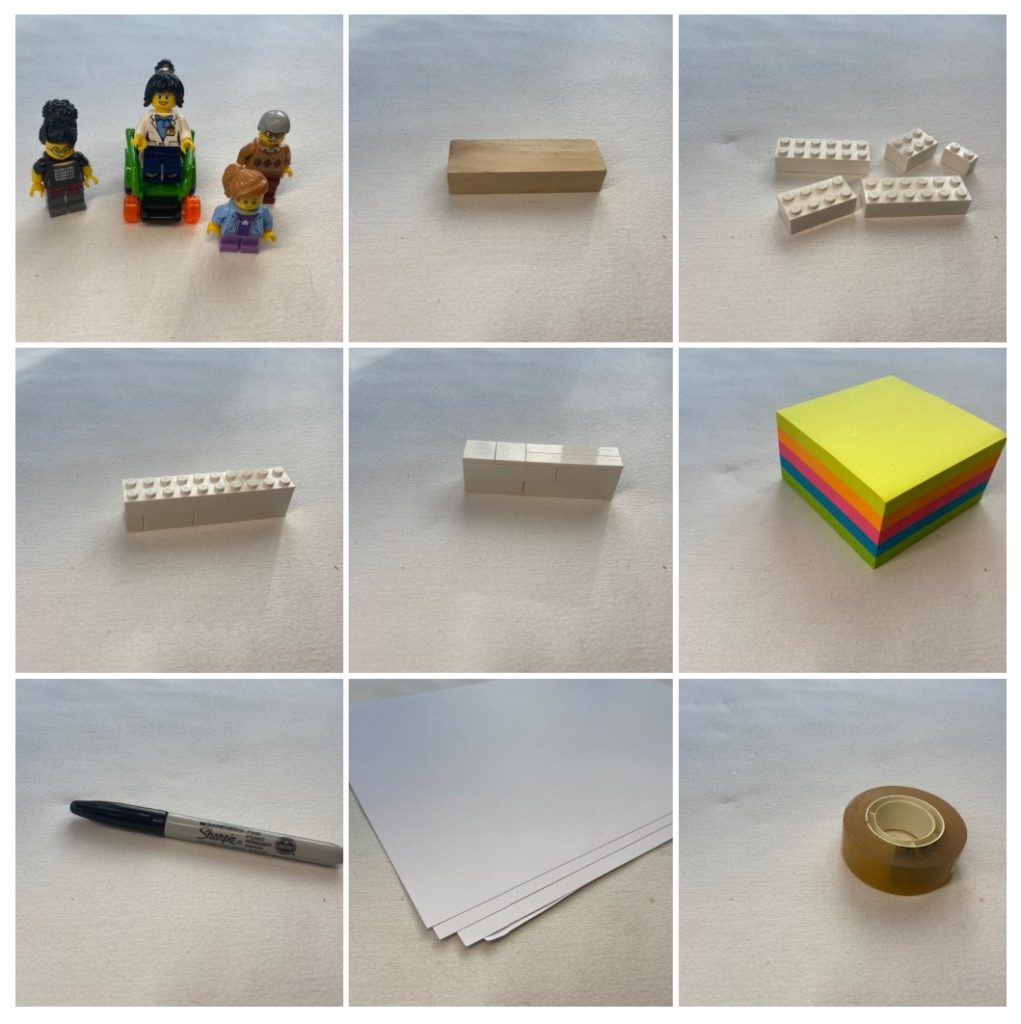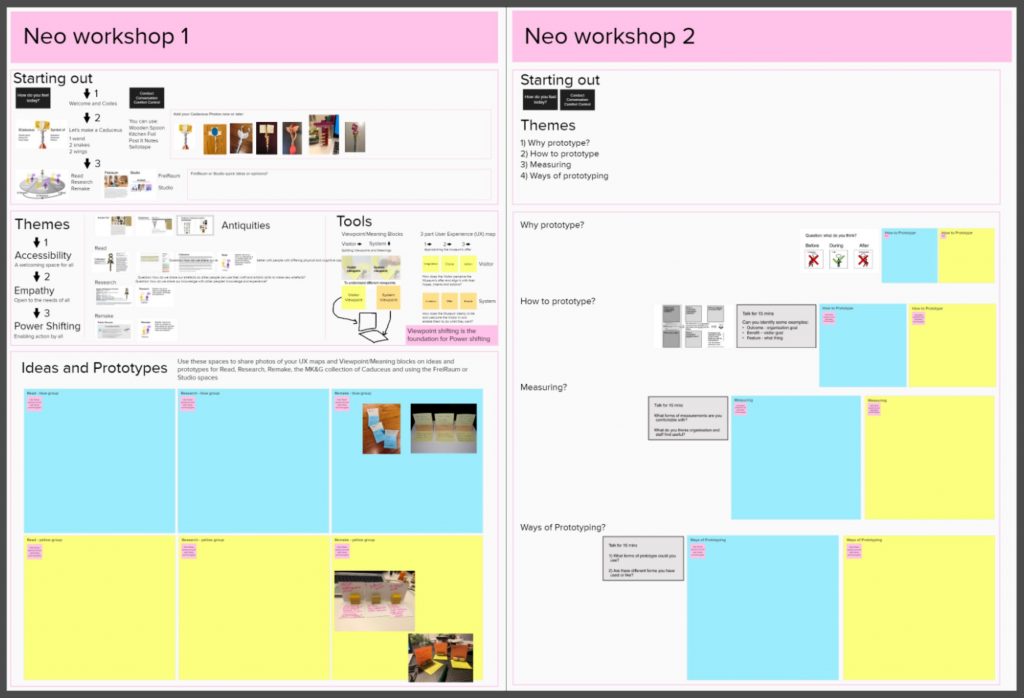
Summary
Prototyping 101 is a simple set of two online workshops to introduce any kind of person (senior professional, new recruit, student or volunteer) in any kind of organisation (commercial, educational, government or charity) to the ideas and practice of prototyping new services and products.
The two workshops are 120 minutes long and are designed for people working from home. They are playful in terms of participants making prototypes with whatever they have around the house but serious in enabling group discussions around framing the methods and measurements to meet organisational outcomes.
Development
The workshops were developed for the NEO project in 3 European museums and, built on the strong design of content, each workshop was customised around individual museum digital project requirements.
It is this customisation to the actual needs of the organisation that is crucial to the workshops. Not just learning about how to prototype but also coming out the workshops with a sense of shared momentum to develop something now.
As part of the workshop package there is a pre-workshop meeting to customise workshop content to organisational needs and a post-workshop meeting to discuss outcomes and clarify next steps.
We learnt how to quickly format ideas into actions.
Museum digital manager
Workshop Description
The two workshops provide a simple explanation of why prototyping is such an important technique in developing resilient and accessible products and services and how to organise it within existing organisational structures with limited funds and staff.
The first workshop is about learning to make things, make mistakes and learn how viewpoint switching enables better products.
The key parts are:
- Introduction: workshop codes of conduct and reflection on workshop purpose
- Designing: Prototyping as asking the user questions at the right time.
- Accessibility: Setting the broadest space for design thru accessibility and diversity
- Break
- Making Maps: Using maps to understand physical and cognitive journeys thru product/service experiences. Showing the difference between human and system centred design perspectives.
- Viewpoint Switching: Using maps and system/human perspectives to understand how experiences differ between people with differing capacities and how this creates opportunities for prototyping new products/services.
The second workshop is about the managerial frameworks and practical processes of prototyping. How prototypes probe both organisational outcomes and user needs to benefit both.
The key parts are:
- Introduction: workshop codes and reflection on last workshop
- When: Prototyping as asking the user questions at the right time.
- Why: Using LeanUX hypothesis framework to form meaningful prototypes.
- Break
- What: Understanding the need for measurements and showing quantitative and qualitative examples.
- How: Building prototypes that work in context (eg Covid restrictions) and budgets (high and low fidelity) and showing examples of possible techniques.
Materials and technology

This is an online workshop but making things and sharing photos of them is important. In the first workshop, the importance of shifting viewpoints from system to user is developed thru making maps out of objects around the participants’ homes.
These physical prototypes are complimented by the use of Mural online whiteboards to share both the key workshop content and the participant-generated prototypes and ideas.

The workshops are generally presented thru Zoom but alternative online communication packages can be used to meet your organisational policy requirements.
Capacity
The workshops are designed for a minimum of 4 participants and a maximum of 20 people (higher numbers are possible but with additional costs for a co-host).
Cost
The Prototyping 101 package cost is £1000 (no VAT) for the two 2 hour online workshops and the two Pre- and Post-workshop meetings.
If you want to create a more customised workshop or provide the workshop to a greater number of people simultaneously, then please contact me for a chat. I am happy to provide free advice on what type of workshop fits your organisation’s needs at this time.